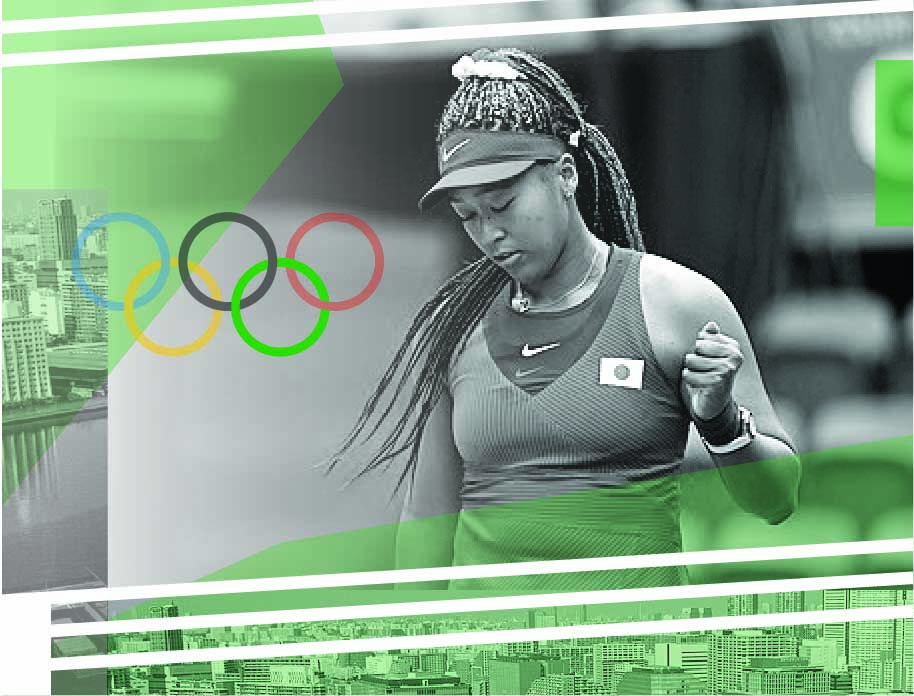
Edward Loveman
PhD Candidate in the Faculty of Management at Bournemouth University. His PhD examines the intersection of imperialism and English national identity within sports mega event audiences.
Twitter: @LovemanEdward

Section 4: Fandom & National Identity
- How much is too much home-nation focus in Olympic coverage?
- South Korea’s changing status and perspective on Japan
- National and ethnic Chinese identities on the Indonesian badminton court
- The Men’s 1500 metres: Not quite erasing the ghosts of history
- Home advantage in the Summer Olympic Games: evidence from Tokyo 2020 and prospects for Paris 2024
- Historical disputes, national identity, and the South Korea-Japan summit that did not happen
- Sports betting and the branded purity of the Olympics
- Communicating corporate social responsibility at the Tokyo 2020 Olympic Games
- Silence in the stands: Does it matter for fans?
- Fans as MVP, or the need for sensuous audiences in sport
- Red, white, and rivalry: A brief discussion of United States rivalry at the Tokyo Olympic Games
- Empty stadiums and the other sites of Olympic fandom
- Pop culture diplomacy: Japan’s use of videogames, anime to promote the Olympics and appeal to younger audiences
- Fans as MVP, or the need for sensuous audiences in sport
- Red, White, and Rivalry: A Brief Discussion of United States Rivalry at the Tokyo Olympic Games: Olympic and Paralympic Analysis 2020: Media, Fans and the Politics of Sport
- Empty stadiums and the other sites of Olympic fandom
- At the intersection of COVID-19 and Tokyo Olympics 2020: Vlogs and the expression of Chinese nationalist sentiments
The Tokyo 2020 Olympic Games reinforced Britain’s imperial identity. Insofar that during the international sport mega-event the social landscape was saturated with narratives both attractive and comforting, affirming hegemonic constructions of belonging which revolve around Whiteness, Christianity, heteronormativity, and conservative binaries of gender. This national self-image of ‘Britishness,’ highly visible during the Tokyo 2020 Olympic Games, dangerously plays with nostalgic visions of nationhood that were forged by the imperialism under which Britain was engulfed (1815-1914). Resultantly, whilst outwardly Britain has developed into a ‘multi-cultural’ nation-state, free from the practical structures of its Empire, the ideological functions of imperialism continue, lingering on in the mundane symbols of nationhood that come to the fore during the Olympic Games. At a time when national community is increasingly being framed through an imagined ethno-racial homogeneity, ‘othering’ those deemed not to belong, the Olympic Games serves as a site for academic critique.
Throughout the Tokyo 2020 Olympic Games, British audiences encountered an imperial national identity, all of it being played out on the British Broadcasting Corporation (BBC). Indeed, the media played a key role in constructing the boundaries of community, given that the vast majority of the messages and images audiences received were mediated. For example, by repeatedly misgendering non-binary skateboarder Alana Smith, two BBC commentators were denying the existence of transgender identities and establishing the hegemony of conservative gender binaries. In the context of an imperial identity, it is also significant that to establish itself as a domestic institution, the BBC embraced its role as a tool of Empire that could promote the ideological agendas of imperialism. The additional dimension here, is that at the height of the British Empire, sport was embraced by governing institutions as a vehicle to promote ‘British’ ideals and culture around the globe. It is hardly surprising, then, that the BBC broadcast more than 350 hours of live footage during the Tokyo 2020 Olympic Games (having provided ‘wall-to-wall’ coverage of the last 2 Olympics). Consequentially, even the national broadcaster and the sport being televised itself played a role in affirming a British imperial identity.
The Tokyo 2020 Olympic Games affirmed the exceptionalism of White, Anglo-Saxon, Christian identity, beliefs and values both directly and indirectly into the very fabric of everyday social existence. Audiences saw the Union Jack almost constantly, either being hoisted up a flagpole or in the colors of athletic wear. The significance of this symbolism should not be ignored, for the flag became a mainstay of British iconography precisely at the point when the Empire and imperial ideology existed in its most conscious, most visceral form in the ‘home’ nations of Great Britain. During this period – and fueled by the rampant and unrelenting urbanization and industrialization of Britain during the 19th Century – the self-proclaimed exceptionalism of Britain’s ruling class was legitimized.
So, among other things, the performance of Team GB at the Tokyo 2020 Olympic Games was a manifestation of legitimizing this exceptionalism. For example, certain items of Team GB kit were adorned with two lions facing each other and there is a longstanding tradition of using the lion in Christianity to represent Jesus. So too does the national anthem, played on 16 occasions, repeatedly proclaim ‘God save the Queen’. Additionally, the two lions mimic the royal coat of arms, only cementing further the sense of Britain’s inherent strength, bravery, and valor. These images are culturally powerful, as the designer of the Rio 2016 kit Stella McCartney rather observantly put, “the coat of arms is all around us in Britain. It’s so much a part of us that we barely even notice it, but it is so distinctively British.” In making such images an integral part of Team GB merchandise, available to purchase on £24.95 T-Shirts or £74.95 Jackets, the Tokyo 2020 Olympic Games has also been an opportunity to ‘sell’ (materialistically) imperial Britain. The process here is akin to the BBC, whereby as a means of establishing market control, transnational corporations have incorporated the boundaries of community into their products.
Such a ‘snap’ evaluation cannot sufficiently cover the myriad of instances where audiences were witness to Britain’s imperial identity during the Tokyo 2020 Olympic Games. What is clear though, is the sheer mundanity of the moments that (re)produce a restrictive nationhood and affirm the principles of imperialism. So, has it highlighted the intentional manipulation and construction of a palatable identity of Britain to ensure both ideological and material gain by state and transnational corporations. As we continue to witness a nation-state reorganizing itself behind pseudo-authoritarian politics that favor elite and populist sentiments, it would be naïve to dismiss the power of the Olympic Games in buttressing these identities.

